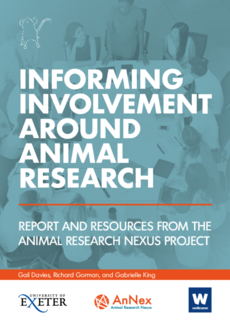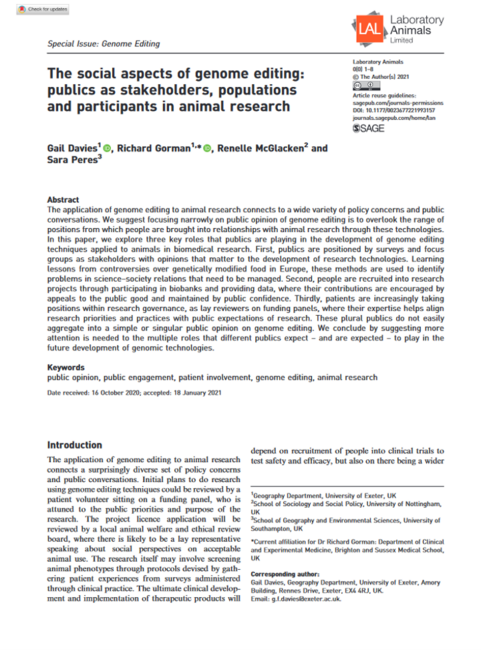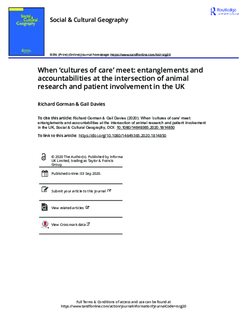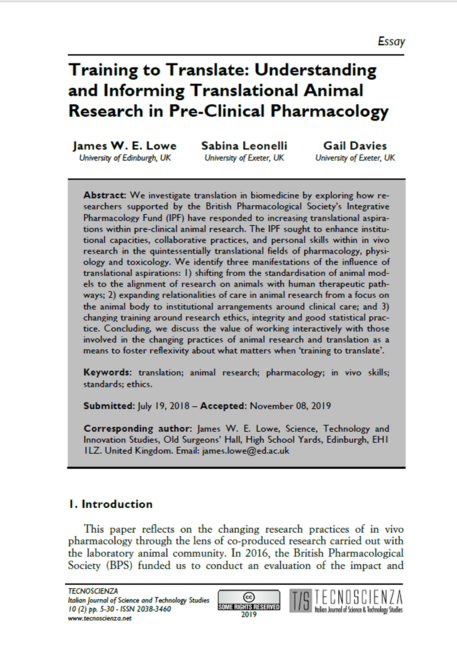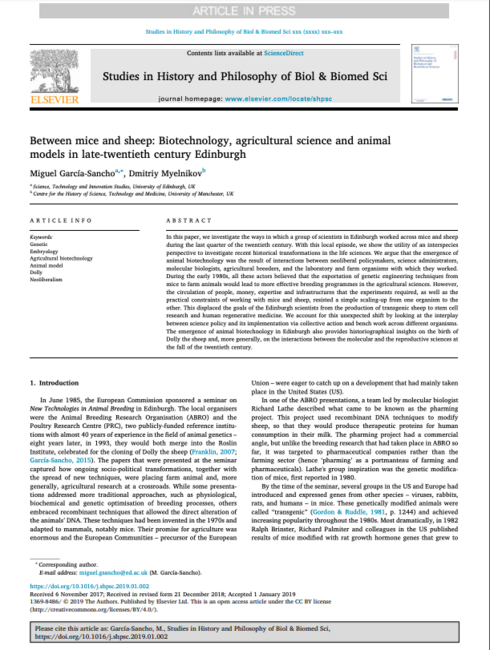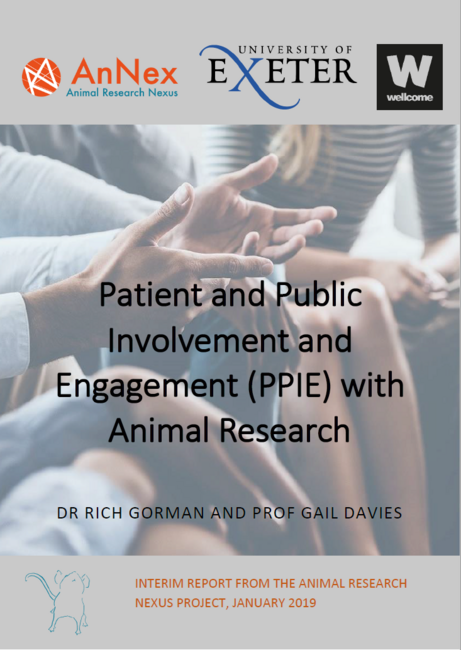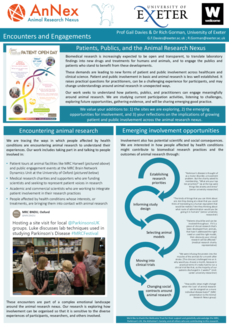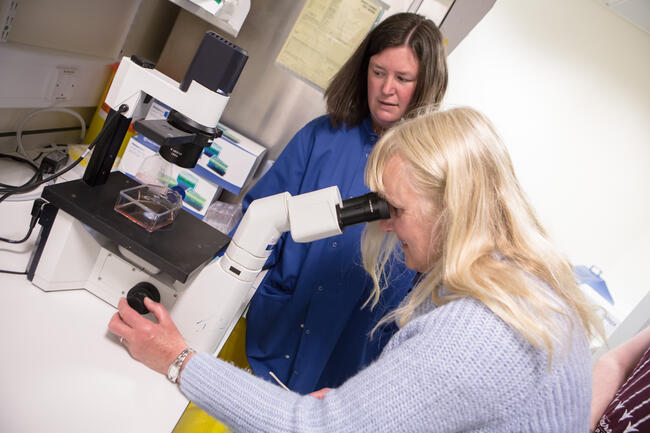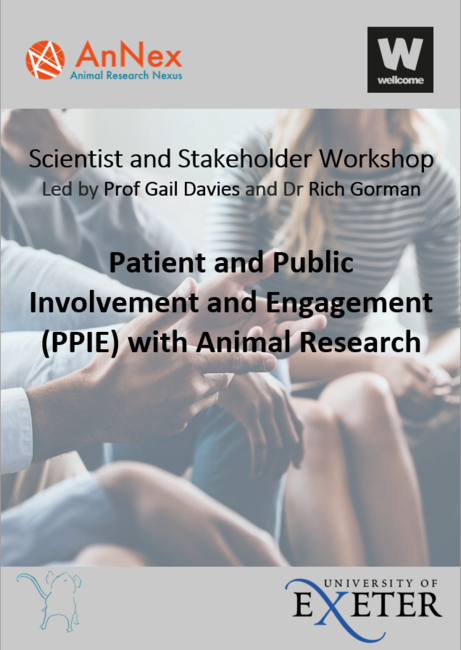Translational research
Relevant, tagged site content:
Publications
This report contributes to a growing body of advice around how to involve people affected by health conditions in laboratory or biomedical research. It draws on work completed as part of the Animal Research Nexus Programme (2017-2023) and brings together our findings with resources to help people who might be involved in conversations around the use of animals in laboratory research in the UK.
The application of genome editing to animal research connects to a wide variety of policy concerns and public conversations. In this paper, we explore three key roles that publics are playing in the development of genome editing techniques applied to animals in biomedical research: as publics, as populations, and as participants.
A good culture of care, empowering individuals within organisations to care and reflecting wider social expectations about care, is now a well-documented aspiration in managing practices of laboratory animal research and establishing priorities for patient and public health. However, there is little attention to how different institutional cultures of care interact and what happens to the accountabilities of caring roles and the entanglements of caring practices when institutional cultures meet.
In this paper, in Tecnoscienza, we investigate translation in biomedicine by exploring how researchers supported by the British Pharmacological Society’s Integrative Pharmacology Fund (IPF) have responded to increasing translational aspirations within pre-clinical animal research.
Here, we investigate the ways in which a group of scientists in Edinburgh worked across mice and sheep during the last quarter of the twentieth century. With this local episode, we show the utility of an interspecies perspective to investigate recent historical transformations in the life sciences.
This report discusses the different expectations people have of Patient and Public involvement and Engagement with animal research. We review the opportunities and challenges across perspectives. We also identify preliminary recommendations for enabling more meaningful involvement.
This poster explains our research exploring how patients, publics, and practitioners might engage meaningfully around animal researc and identifying how people affected by health conditions might contribute to the research practices that potentially involve animal research.
Blog entry
A lot of guidance has been written about how to actively involve patients and the public in clinical research, and evidence is growing about the value of this.
We are delighted to feature this guest blog on mice models in animal research from Nicole C. Nelson.
Events
We are holding a workshop in April 2019 to bring together scientists and stakeholders to progress practices that will enable people to have more comfortable and productive conversations about animal research within the context of patient and publi
Project partners

The Medical Research Council Brain Network Dynamics Unit at the University of Oxford opened in April 2015.
